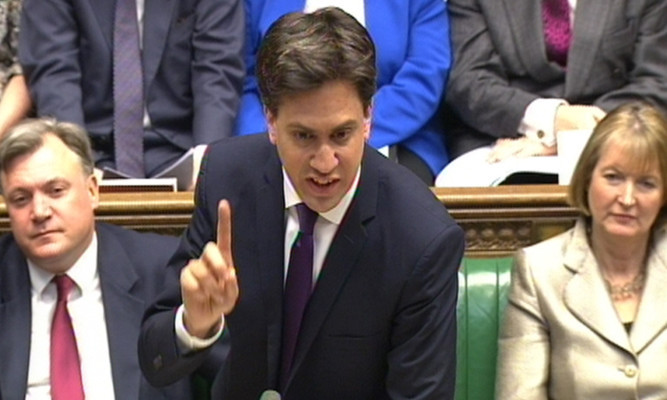
As the General Election draws nearer, Prime Minister’s Questions grows more raucous each week.
And the man in charge of keeping order, Speaker John Bercow, grows more pompous.
He intervened repeatedly last week, upbraiding MPs for “very considerable rudeness”.
Bercow likes to remind his charges that it looks bad to people watching on TV if they misbehave.
Fine, but that is undermined by his actions the previous day when he compared a Government minister to a washing machine.
Of course, hardly anyone watches parliamentary proceedings the rest of the time, so he might have got away with it.
But doughty Mrs Doubtfire-a-like Heather Wheeler wasn’t going to let him off the hook and saw fit to raise a point of order immediately after PMQs forcing Bercow to issue a grovelling apology to the minister in question, Esther McVey of the Department for Work and Pensions.
In her time in office the former TV presenter and self-confessed wannabe Prime Minister has overseen changes to disability allowances and closed Remploy factories that employed people with disabilities, and now is in charge of the sanctions regimes regulating when people get their benefits switched off.
Some might say a washing machine has more heart than McVey, but whoever the target, it’s not a good look to compare a high-flying woman to a domestic appliance.
But remarkably this was not the only political story involving domestic appliances last week.
Ed Miliband managed to make himself look even less normal after it was revealed he has two kitchens. Unless you live in a castle or a hall of residence, having two kitchens is undoubtedly odd.
The Milibands, for Ed’s wife Justine joined him for a homely photo shoot, had invited the press into their London house.
But something about the shot of the couple in their kitchen didn’t ring true. Miliband is keen to get people talking politics round their kitchen table, but there was no table in his kitchen.
Turns out that’s because the table is in his other kitchen.
He claims the kitchenette is the one he uses, but suspicion remains he chose to be snapped in the smaller of his two kitchens to make him look more humble and normal.
That backfired.
The kitchen thing is a typical example of two phenomena in current politics.
The first is a media obsession with trivia, driven by the internet and typified by websites like Twitter and Buzzfeed.
Buzzfeed is the site that recently turned a Victorian optical illusion into a global meme when it published a picture of a white dress and asked readers if it was actually blue. There’s always a place for irreverence and interesting titbits in politics, but Buzzfeed takes trivialisation to a new nadir.
However, it’s a reality of modern politics and tomorrow the Prime Minister will be interviewed by Buzzfeed, no doubt about kittens and cult TV programmes rather than anything of substance.
But it’s a sign of the different class of counsel Cameron gets.
He’s embracing the internet and controlling his appearance on it while Miliband appears in articles listing the Labour leader’s top public relations fails.
Which leads to the second phenomenon Ed’s inability to spot bother.
If Miliband is to win in May and the bald numbers still point to that being the most likely outcome he needs a group of advisers and friends whom he can trust totally.
Perhaps because he publicly downed his brother David’s ambitions, he seems unable to trust the advice of others.
An invaluable inner circle might help him avoid the sort of slips that are becoming his trademark.
Labour leader predecessor Harold Wilson expert at manipulating his “man of the people” image relied on such a circle, and he called it his kitchen cabinet.

Enjoy the convenience of having The Sunday Post delivered as a digital ePaper straight to your smartphone, tablet or computer.
Subscribe for only £5.49 a month and enjoy all the benefits of the printed paper as a digital replica.
Subscribe